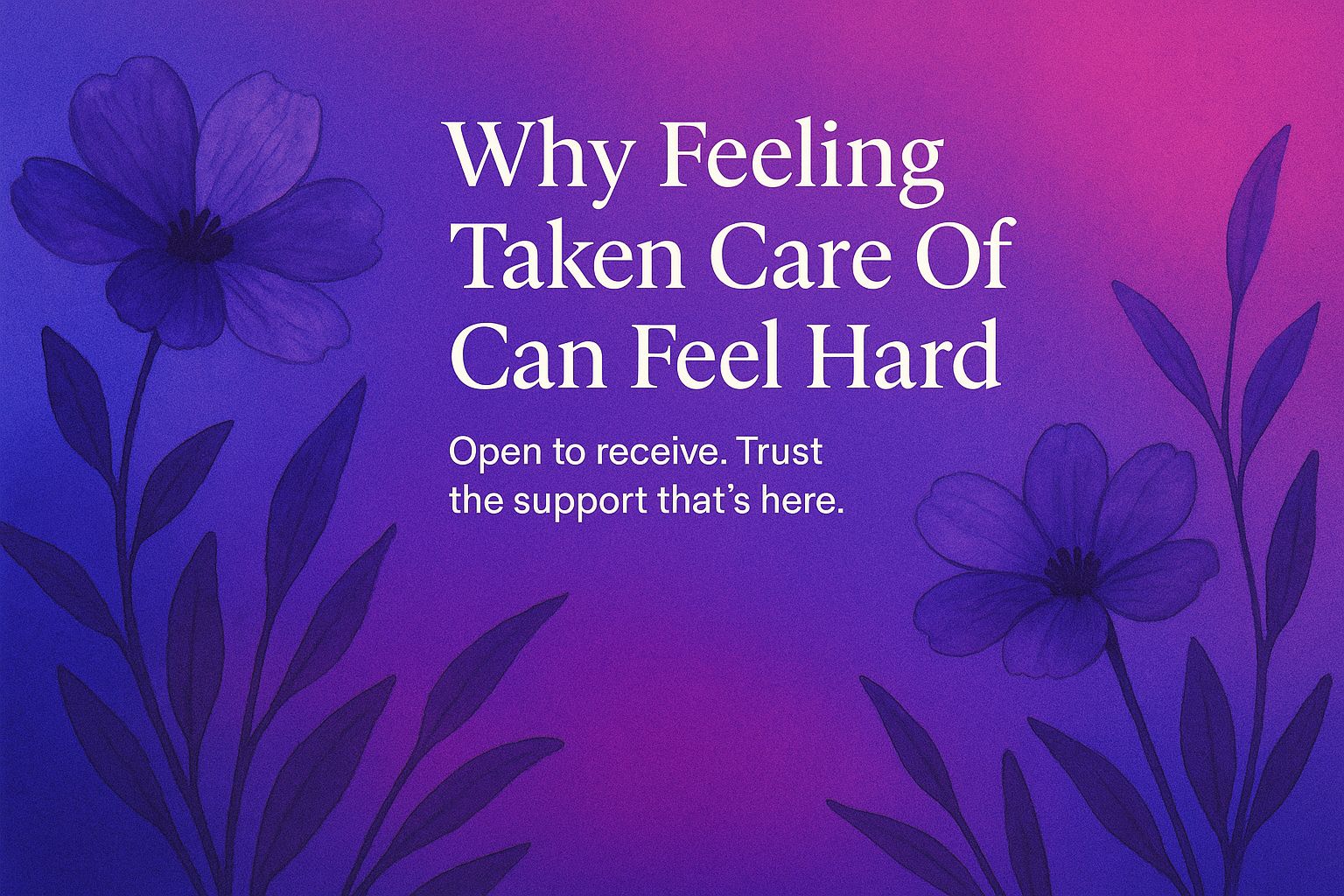- Esther's Letters
- Posts
- Why Feeling Taken Care of Can Feel Hard
Why Feeling Taken Care of Can Feel Hard

Learning to Feel Supported (Even When It’s Hard)
I’ve been sitting with something deeply human lately—something I think many of us experience but rarely say out loud: it can feel hard to let ourselves feel taken care of.
When life has required you to hold a lot—kids, finances, work, relationships—it’s easy to develop an unspoken belief:
“If I don’t hold it together, no one will.”
For many of us, that belief started long ago, maybe in childhood when we had to grow up quickly, or later, after life taught us that support isn’t always reliable. Over time, the nervous system learns:
“I’m safer if I don’t rely too much on others.”
So even when support is available—whether from God, a partner, or even our own bodies—it can feel foreign, or even unsafe. That resistance is actually a protection mechanism, a part of us saying, “We’ve been let down before, don’t get too comfortable.”
Faith and Trust
Sometimes this shows up in our faith life, too: “Will God really show up for me? Or am I on my own?”
It’s not about lacking faith—it’s about how trust feels in the body. If you’ve learned to survive by depending only on yourself, trusting—even in the divine—can feel unfamiliar.
It also shows up in relationships. A marriage, a friendship, even a supportive workplace might feel good but still trigger that deep, old belief: “I’m the one holding it all together.”
The Gift in Noticing
The beautiful thing is that noticing this pattern is the first step to softening it. You don’t have to push the resistance away or force yourself to trust instantly. Instead, meet it with curiosity and compassion.
A Gentle Practice
Next time you feel unsupported or anxious, try this:
Place your hand over your heart or belly.
Say quietly:
“There’s a part of me that doesn’t feel taken care of right now. That’s okay. That part has worked hard to keep me safe.”Then ask:
“What do I need right now to feel even 5% more supported?”
Sometimes the answer is physical (water, rest), sometimes spiritual (a prayer), sometimes relational (reaching out to someone).
These small moments of kindness can create space for a new belief to grow:
“I am supported. I can soften. I can receive.”
Esther